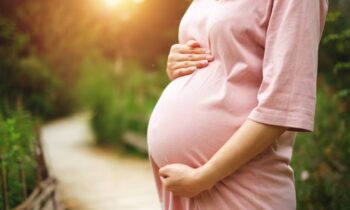An international group of experts has discovered that pregnant women’s protein intake can affect how their unborn child’s face develops. The team used mice and zebrafish in their research, which was published in the journal Nature Communications. They sequenced genes from human embryonic facial tissue.
Past studies and anecdotal data have demonstrated that a person’s facial features are mostly determined by their genetic makeup. However, several studies have indicated that additional variables, such the surroundings during pregnancy, may also matter. In this new study, the researchers investigated if pregnant women’s diets could have a minute effect on how their unborn child’s face develops.
The study team started by sequencing face tissue extracted from human embryos to find out. Enhancers linked to genes previously linked to the mTORC1 pathway were discovered by the researchers; this pathway is known to be important for the way cells metabolize food. According to their research, the route may be involved in regulating the development of the skeleton in its early stages.
The researchers used mice and zebrafish in their tests to test different types of modulation; in some, they activated the route influencing facial structure, and in others, they deactivated it. They contrasted the groups with and without altered pathways.
They discovered that among the variations, the pathway’s activation resulted in larger-than-normal face features and thicker nasal passageways than usual. Conversely, deactivation of the system produced mice with a bigger snout and zebrafish with a longer than usual face.
They then investigated the possibility that nutrition could be involved. A group of mice were given a diet high in protein because the researchers suspected that protein consumption might activate the mTORC1 pathway. When compared to mice given a normal diet, testing revealed that the embryos of the mice given the extra protein had larger nasal capsules and lower jawbones than normal.
The study team comes to the conclusion that a mother’s food can affect how her face develops. This finding also raises the possibility that there are still unidentified ways in which other dietary components may affect embryonic growth.

